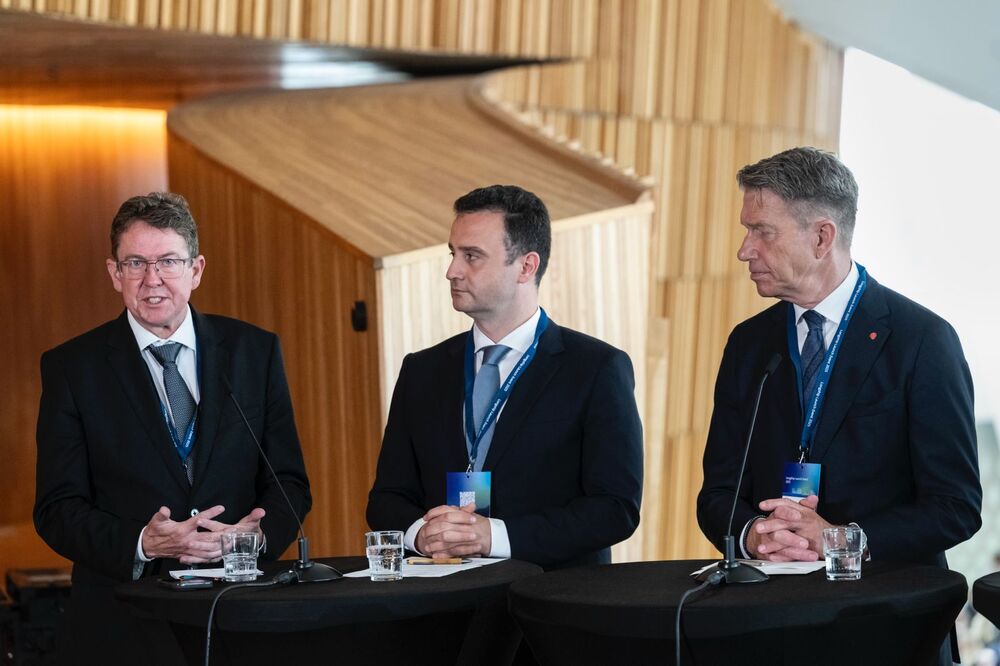site.btaEnergy Minister Attends Launch of Europe's First CO₂ Capture and Storage Infrastructure in Norway


Bulgaria’s Minister of Energy, Zhecho Stankov, participated in the official inauguration of Longship — Europe’s first integrated infrastructure for carbon capture, transport, and storage (CCUS), the Energy Ministry of Energy said on Tuesday. The event took place in Oslo, marking a major milestone in the practical application of climate neutrality technologies.
“The nearly decade-long discussion about how we can capture and store carbon dioxide has finally come to life — and I thank you for making it possible,” Minister Stankov said during the opening session.
He took part as a panelist in a discussion titled “Europe Toward Net Zero”, alongside Norwegian Energy Minister Terje Aasland, Swiss Energy Minister Albert Rosti, Belgian Energy Minister Mathieu Bihet, and Esther Pijs, Director-General for Climate Policy and Sustainable Growth of the Netherlands.
Addressing the participants, Minister Stankov emphasized that Bulgaria has one of the most carbon-intensive energy systems in Europe. For this reason, he noted, carbon capture and storage is not merely a technological choice, but a vital opportunity to safeguard national industry and jobs.
“We want to secure and preserve industrial activity on our territory — and CCUS is one of the key pathways to achieving this,” Stankov stated. He added that the technology is not only a tool for meeting climate goals, but also a symbol of transformation: “a bridge between industrial heritage and green leadership.”
In his remarks, Minister Stankov emphasized that Bulgaria is pursuing a comprehensive energy transition policy, rooted in both innovation and social responsibility. The country has established a stable legal and strategic framework that offers long-term predictability for businesses. A key part of this policy is financial support for companies investing in their own electricity generation facilities — a crucial step toward industrial energy independence and competitiveness.
He also underlined Bulgaria’s ambition to become a regional energy balancer in the Balkans. “We are working on the development of large-scale battery storage systems, as well as on expanding and modernizing our hydropower potential through new pumped-storage projects,” he said. These facilities, he noted, will play a critical role in ensuring flexibility and security within the electricity system. The Bulgarian government is actively seeking strategic investors to support these developments.
In conclusion, Minister Stankov stressed that Bulgaria’s energy transition is not only a national priority but also part of a broader effort for regional and European transformation. Cooperation with neighboring countries, the development of green energy corridors, and joint investments will form the foundation for a more sustainable, innovative, and socially just energy future.
/PP/
news.modal.header
news.modal.text